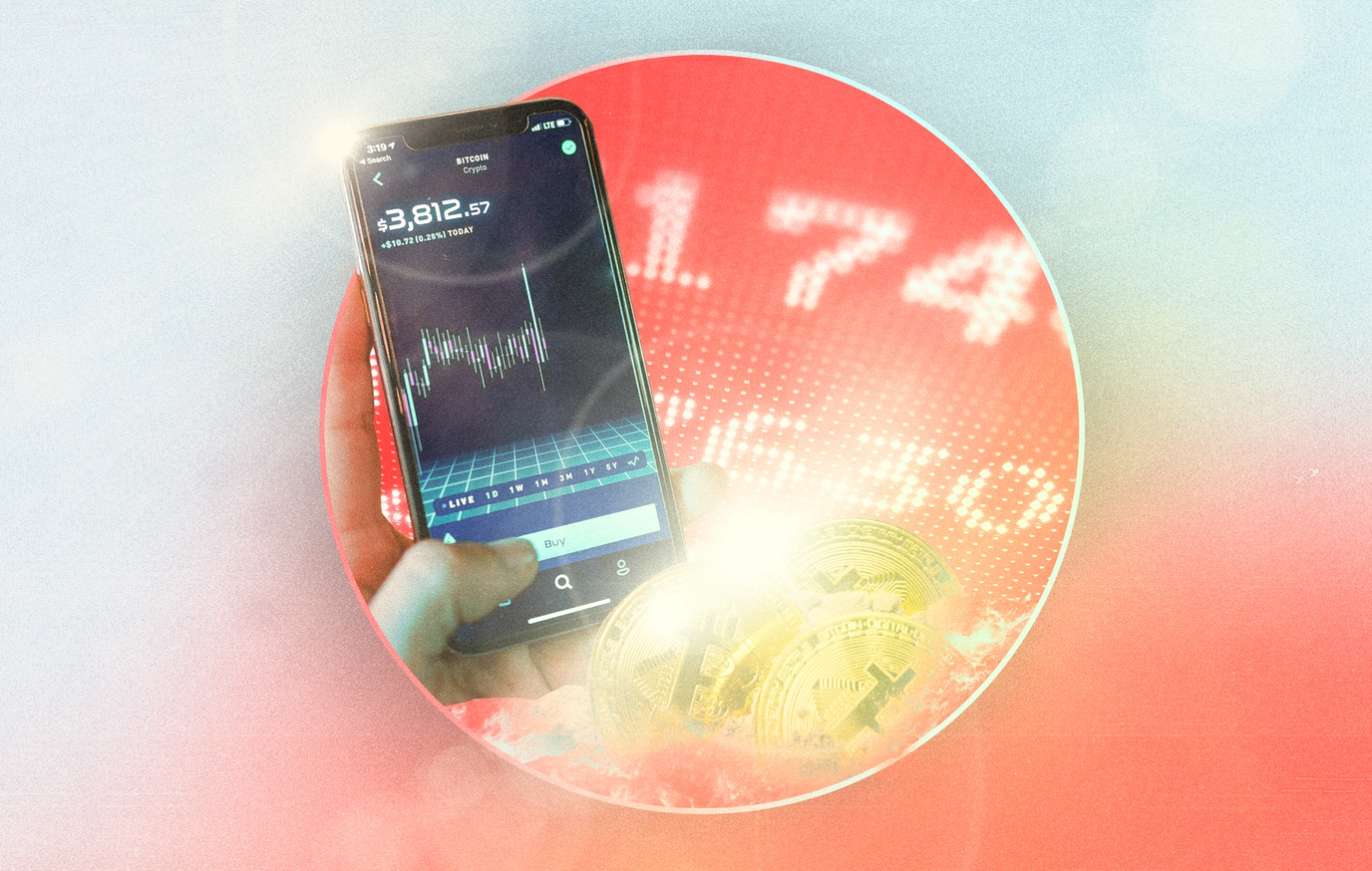Back
5 Things to know before putting all your money into Bitcoin & cryptocurrencies
5 min read

Written By
Gaby Pilson
Rounding it up
The unregulated world of Bitcoin and other cryptocurrencies may promise potential big profit, but they also promise uncertainty.
Before you invest, know that buying cryptocurrency can be tricky; you must set up a digital wallet that many financial institutions don’t allow.
You’ll also be charged a foreign transaction fee on your cryptocurrency purchase as well.
Cryptocurrencies are not regulated or insured, and their value fluctuates a lot. Safe to say, you should invest only if you’re okay with some financial risk.
Cryptocurrencies are all the rage these days, but are they really what they're cracked up to be?
Many Canadians start investing in Bitcoin and other cryptocurrencies because they offer seemingly limitless opportunities to turn a big profit with relatively little work. However, cryptocurrencies have a reputation for being unpredictable due to their lack of regulation, so it’s understandable if you’re not sure that they’re right for you.
To get you started, here are five things to know before putting your money into cryptocurrencies, to help you make the most of your foray into the world of digital money.
1. Buying cryptocurrency can be tricky
Cryptocurrency is decentralized digital money, so it’s not produced or controlled by any government or central banking industry. Therefore, you can’t just walk down to your local ATM, pop in your bank card and get physical Bitcoins that you can use to buy a cup of coffee like you would with good old fashioned Canadian dollars.
To buy cryptocurrency, you have to go online and set up a digital wallet. A digital wallet is essentially an online platform that lets you store your Bitcoin (or other digital currencies) so you can buy and sell them using dollars or whatever physical currency you might use.
Once you have a digital wallet, you then head over to a “cryptocurrency exchange,” where you can buy, sell, and trade in the digital currency of your choice.
SPEND SMARTER. SAVE FASTER
2. You might get charged a foreign transaction fee
Since cryptocurrencies are, by design, not associated with any government or financial institution, you can purchase digital currencies from exchanges around the world. This flexibility is great because it allows you to work with any exchange that you like, without needing to limit yourself to options within Canada.
Unfortunately, when you opt to use cryptocurrency exchanges that are based outside Canada, you’ll almost certainly be charged a foreign transaction fee on your purchase. The standard foreign transaction fee of 2-3% at most credit card companies might not sound like much, but if you buy $1000 of Bitcoin, you’ll pay $30 in fees! So, brace yourself before you make that purchase.
3. Cryptocurrencies are not regulated or insured
For many new cryptocurrency investors, the idea that Bitcoin and other digital currencies aren’t associated with a government or a central bank can be quite scary. In fact, unlike savings accounts and other types of eligible deposits in Canada, digital wallets are not CDIC insured.
That means that any money you choose to invest in cryptocurrency is at your own risk.
Does this mean you should avoid crypto at all costs?
Not necessarily, especially if you’re okay with a bit of financial risk. But it’s important to be cautious with your investments and to avoid putting all of your eggs in one figurative basket.
A great way to do this is to diversify your assets by investing your hard-earned money into a TFSA or RRSP, alongside your cryptocurrency.
4. You’ll need a way to cash out your cryptocurrency
Since cryptocurrencies are kept in digital wallets, you can’t just buy a bunch of Bitcoin on an exchange and then use it to go on a shopping spree at the mall.
Instead, you’ll need to cash out your digital money into a form that’s accepted by the majority of businesses and stores, though it’s worth noting that some establishments actually do accept cryptocurrency.
Most crypto exchanges that allow you to buy digital currencies also allow you to cash them out into Canadian dollars, US dollars, or other major currencies. You can then deposit this money straight into a PayPal account or bank account.
When you cash out your crypto investment into your bank account, you can then use your funds to make regular purchases, just like you would if your money came from your paycheque.
SPEND SMARTER. SAVE FASTER
5. The value of cryptocurrency fluctuates
When Bitcoin first entered our collective lexicon in early 2009, it wasn’t worth very much. In fact, in the early years of the digital currency’s existence, each coin was worth about $160 after an initial spike in value.
According to CoinDesk, it’s grown substantially since it was first introduced, reaching an all-time high of over $25,000 in late-2017 and then dropping down to just $4,400 one year later.
This means that cryptocurrency is a high-risk investment, especially when compared to much more stable and reliable assets that are held in Canadian dollars, or any other major currency.
The fact that cryptocurrencies fluctuate so much in value also indicates that they’re not necessarily a great place to invest your entire life’s savings. If you want to get started with Bitcoin without risking too much of your financial assets, set aside a small sum of money you’d be willing to part with, such as your coffee money for the week.
Making crypto purchases less risky
Cryptocurrency is an exciting technology with many potential advantages over traditional money systems. It’s not without its risks and uncertainty, so weigh your options and risk tolerance carefully before diving in!

About the author
Gaby Pilson is a writer, educator, travel guide, and lover of all things personal finance. She’s passionate about helping people feel empowered to take control of their financial lives by making investing, budgeting, and money-saving resources accessible to everyone.
Read more about this author